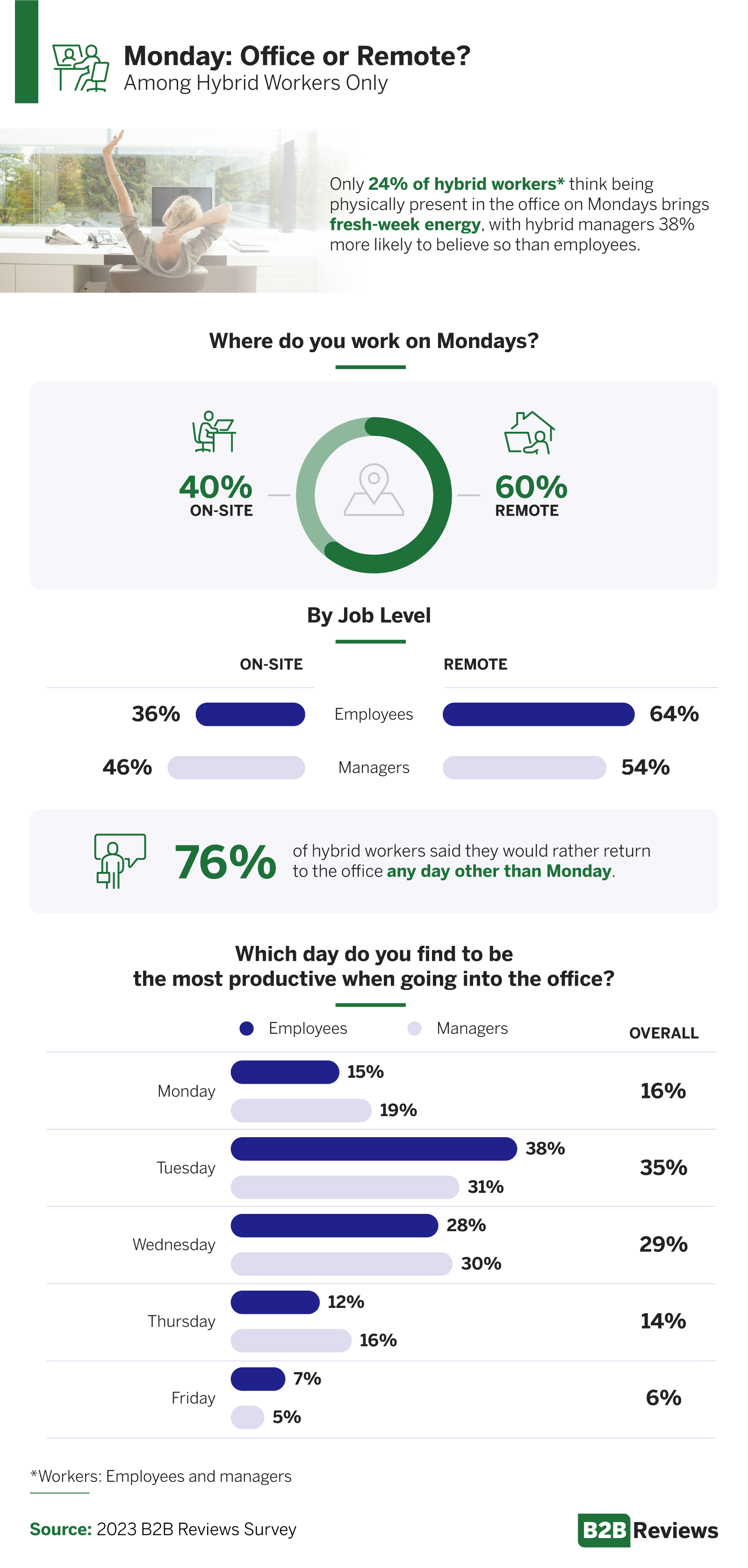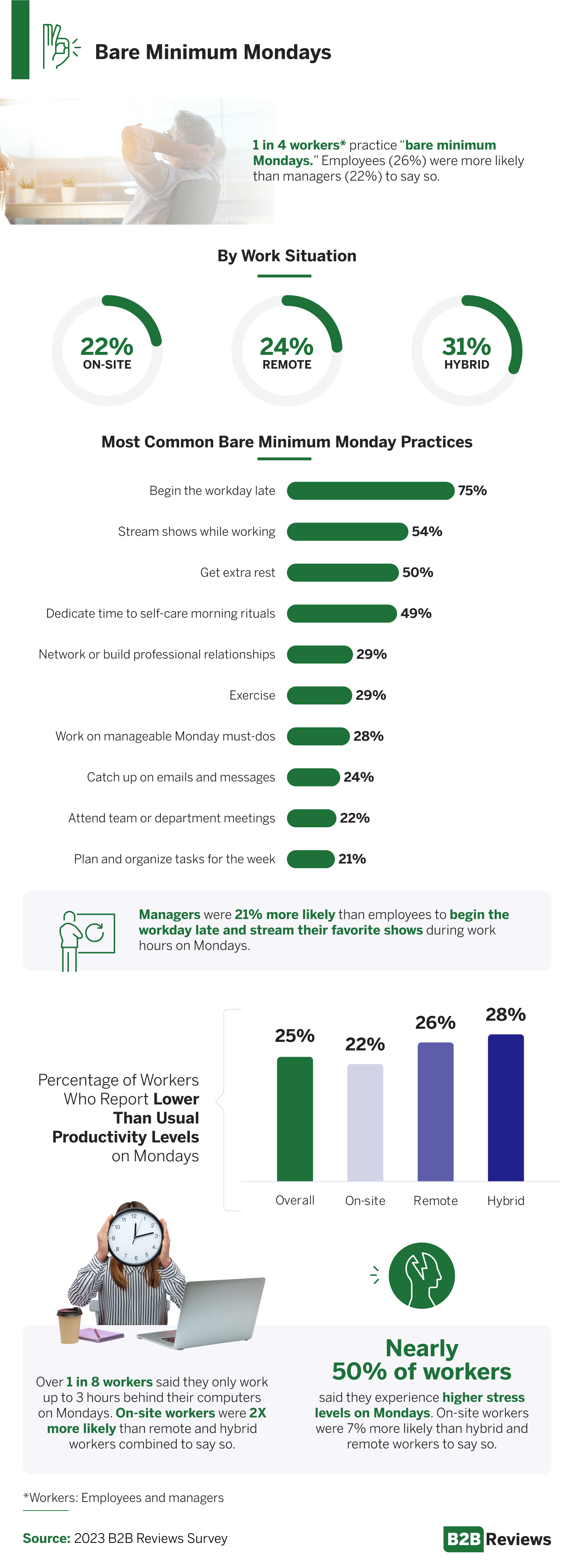We may earn money when you click on links to our partners. Advertiser Disclosure

Most of us dread returning to work on Monday morning, but many companies require Monday to be an in-office work day. Does starting the week in-person foster positive energy, or just make us all more tired? We surveyed 1,003 Americans working on-site, hybrid, and remote about their productivity, stress levels, and preferences for starting the workweek. Let’s see if a non-Monday start to the workweek could be the next big change in the workplace.

Key Takeaways
- Only 24% of hybrid workers think being physically present in the office on Mondays brings fresh-week energy, with managers 38% more likely to believe so than employees.
- 60% of hybrid workers work remotely on Mondays, while 40% go into the office.
- 76% of hybrid workers would rather return to the office any day other than Monday.
- 35% of hybrid workers say Tuesday is the most productive day to go into the office.
- Only 16% of hybrid workers say Monday is the most productive day to go into the office.
- The top reasons workers prefer a non-Monday return to the office include the following:
- Better work-life balance throughout the week: 43%
- Easier to get back into work mode: 42%
- Avoid the rush and chaos of Mondays: 34%
- Aligns with personal or family schedule: 31%
- Allows a smooth transition from the weekend: 27%

Key Takeaways
- 1 in 4 workers practice “bare minimum Mondays.” Employees (26%) are more likely than managers (22%) to say so.
- Hybrid workers (31%) are more likely to practice bare minimum Mondays than remote (24%) and on-site (22%) workers.
- 1 in 4 workers say they are less productive on Mondays than the rest of the week. Hybrid workers (28%) are the most likely to say so compared to remote (26%) and on-site workers (22%).
- Over 1 in 8 workers say they only work up to 3 hours behind their computers on Mondays. On-site workers are 2 times more likely than hybrid and remote workers combined to say so.
- 82% of workers desire a shorter workweek.
- By work situation:
- Remote: 84%
- Hybrid: 80%
- On-site: 81%
- 57% of workers want Monday to be part of the weekend.
- By work situation:
- Remote: 59%
- Hybrid: 56%
- On-site: 55%
The Monday Dilemma
The American workplace has changed significantly over the past few years, and workers continue to question long-standing business standards. Many workers prioritize work-life balance and feel less time at the office leads to more focused productivity. Our study found that Mondays are often less productive, and many workers feel a longer weekend and Tuesday start day would bring better energy to the office. As employers consider employee preferences and flexible work arrangements, they can foster a positive work environment and enhance productivity throughout the week.
Methodology
For this campaign, we surveyed 1,003 employed Americans. Among them, 68% were employees, and 32% were managers. The work situation of respondents is as follows: 26% hybrid, 34% on-site, and 39% remote.
About B2B Reviews
B2B Reviews facilitates the decision-making process for managers in small and mid-sized businesses by offering buying guides and expert reviews. Our platform provides valuable insights and complimentary resources that streamline the B2B purchasing journey and connect buyers with high-quality brands.
Fair Use Statement
Think the workweek should start on any day other than manic Monday? Please feel free to share this article for noncommercial purposes only; you must provide a link back to this page so readers can access our full findings and methodology.